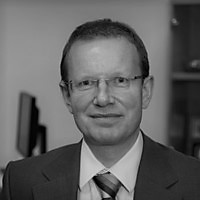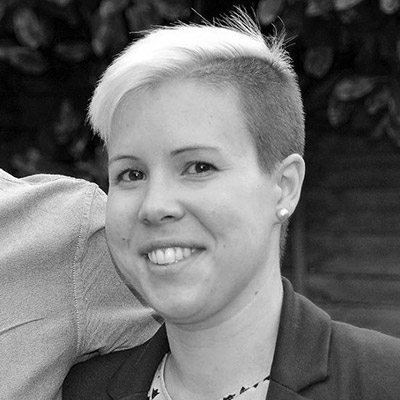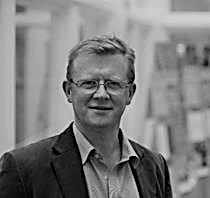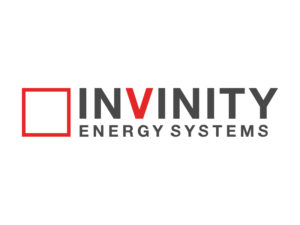8 September 2021
How is chemistry enabling energy storage for net zero?
Organised by:
Online webinar
Synopsis
In October 2020 UK BEIS announced that offshore wind capacity will increase to 40 GWe by 2030, energy storage to manage intermittent generation will become an increasingly vital part of the UK’s energy system. A wide variety of storage technologies are in development to store both heat and power including batteries, gravity systems, compressed air, hydrogen, fuel cells and phase change materials. Chemistry has a significant role to play in accelerating the deployment of these technologies including new advanced materials, battery technologies, catalysis, and electrochemistry.Bloomberg NEF anticipates that the global energy storage market will grow to a cumulative 942GW by 2040 and attract $620billion in investment over the next 22 years. It predicts that the leading countries will be China, the U.S., India, Japan, Germany, France, Australia, South Korea and the U.K.
A range of new electrical and thermal energy storage technologies are being developed rapidly and are reducing in cost. Batteries, for example, are predicted by Bloomberg to reduce in cost by 52% by 2030, facilitating the UK Government’s announcement of October 2020 to increase offshore wind from 30GWe to 40GWe capacity by 2030.
Technological innovation, especially in chemistry, is now needed more than ever to allow energy storage to realise its value and benefit the UK energy system across power, heat and transport.
Attendees
- Academics looking to hear about the latest developments, plus showcase for research and research teams.
- Business leaders looking to find out about the latest developments in a range of energy storage technologies
- Early career researchers (in academia and business) looking to widen their understanding and network around their energy storage chemistry studies, and to access a platform for discussion and collaboration with possible industry partners.
- Investors seeking to understand the opportunities for emerging storage technologies within the wider energy system.
Speakers

Adam Paxson has over 12 years’ experience with advanced materials development with a focus on engineered surfaces. After receiving a Ph.D. in Mechanical Engineering from MIT, Dr. Paxson led a company developing vapor-deposited coatings for industrial process plants. Adam joined Giner ELX in 2020 before being acquired by Plug Power and now leads a number of electrolyzer technology development programs.

Andy is Johnson Matthey’s Technical Marketing Director; within this role he analyses and assesses the regulatory, market and technology drivers for the evolution of the automotive powertrain towards electrification (covering both batteries and fuel cell systems). He also focuses on the clean energy transition and its implications, both for transport and beyond, including driving the use of clean hydrogen as a key enabler across different sectors. Andy is the author/co-author of over 80 publications, and in 2006 was awarded the Lloyd L Withrow
Distinguished Speaker Award by the Society of Automotive Engineers (SAE). In 2011 he was elected SAE Fellow.

Cameron is an industrial chemist with a passion for innovation in sustainable technologies. Since graduating in 2017 with a Masters in Chemistry from the University of Leeds, he has dedicated his career to developing battery materials as a chemist at William Blythe. Beginning with a secondment to the National Graphene Institute researching novel graphene anode materials for Li-ion batteries, he then took leadership of work that explored Li-ion cathode materials, Li-S technology and sustainable battery manufacturing. He has also sat on an expert panel for a battery funding call and has recently designed and installed the Synthomer Energy Storage Facility.

Born in Barbados Carlton is an entrepreneur and design engineer focused on solutions to global energy and waste challenges. Carlton’s career spans from electric motorsport to renewable energy and has worked in the Caribbean, the UK and Africa. Currently Carlton operates his own company Aceleron, in the UK which develops technology to make batteries more sustainably. To date Aceleron has developed over 5 battery products and 4 technology patents.
He's achieved international recognition for his work, with awards like Forbes 30 under 30 list 2017, Shell Global Innovator 2017 and Shell Entrepreneur of the Year 2016.

Gareth Brett joined Highview in 2006 to lead the company in taking liquid air energy storage from concept to market-ready technology. He joined the Board to become full-time CEO in December 2008, before being appointed Vice Chairman in September 2018 and Chief Technology Officer in December 2018.An Electrical Engineering graduate from Bristol University, Gareth began his career with Southern Electric in 1977, becoming Projects Director for its generation subsidiary (SEPG) where he was responsible for development, financing and commercial arrangements on three major UK independent power projects (IPPs). Prior to joining Highview full-time as CEO, Gareth was also Head of New Nuclear Build for British Energy. His career has included a 5 year period in investment banking and 3 years based in the USA as President of Entergy Asset Management.

Graeme leads National Grid’s work on transport decarbonisation enabling the journey to Net-Zero transport (Road, Rail, Aviation & Maritime).
Graeme also leads the drive towards the Net-Zero 2050 target, by delivering a pathway for critical connections in the East of England by 2030 to enable delivery of the target of 40GW of Offshore wind.
With over a decade in communications infrastructure and over a decade in low/zero carbon electricity, Graeme is a well-known and highly respected energy industry expert.
Graeme is a graduate of Oxford Brookes University (BSc 1997) and Bi Norwegian Business School (MBA Energy 2016).
Graeme takes his decarbonisation work home with him as he drives an electric car and heats his home using ground source heat pumps.

Jeffrey leads Invinity’s energy analytics team, developing energy system and financial models to design optimal energy storage solutions and inform the company's commercial strategy. He has been working on sustainable energy systems for the past 10 years, both in academia and industry, both organic and inorganic. After a PhD in the bioenergetics of photosynthesis and Postdoc work in bioengineering waste-to-H2, he has gained commercial experience setting up energy storage modelling at Lightsource Renewable Energy before moving to Invinity to focus on vanadium redox flow energy storage.

Jessica is the research team leader for Croda’s Energy Technologies Business. Formed from four existing strong and innovative business areas within Croda, Energy Technologies integrates: Lubricants, Oil & Gas, Phase Change Materials, and Batteries & Catalysts.
Jessica has a strong background in organic and polymer chemistry having joined Croda’s Global Synthesis Team in 2013 before moving on to Energy Technologies in 2020. She received a first degree in chemistry from the University of Liverpool and a PhD in inorganic materials chemistry from the University of Nottingham.

Mahesh has more than 10 years of experience in cutting-edge technological research and has a strong interest in developing a wide array of renewable technologies including thermal storage, supercritical water gasification, solid-oxide fuel cells, green steel and renewable hydrogen production with a key focus on system design and process optimisation. At 1414 Degrees, he is leading the engineering and R&D teams in the design and manufacture of a reliable, robust and high efficiency thermal storage. Mahesh holds a Bachelor’s degree in Metallurgical and Materials Engineering from IIT Kanpur and a PhD in Mechanical and Aerospace Engineering from Monash University.

Seamus Garvey joined the University of Nottingham as Professor of Dynamics in July 2000. His research background up to that point had mainly been in the structural vibrations and the dynamics of rotating machines. In 2005, when serving as Director of Research for the then School of Mechanical, Materials and Manufacturing Engineering, Seamus identified a major potential opportunity for engineering developments in the space of energy storage to complement and enable the introduction of very high penetrations of renewables into energy systems in the UK and worldwide. The main focus of his research changed from that point. Since then he has (a) developed designs for integrating energy storage directly with offshore wind turbines, (b) started a spinout company called Cheesecake Energy Ltd. developing a thermo-mechanical energy storage system involving compressed air and (c) spoken very widely to dispel myths and to elucidate the separate future requirements for medium-duration and long-duration energy storage.

Dr Simon Hackett has recently joined the Johnson Matthey Battery Materials Recycling team as a business development manager tasked with developing a number of commercialisation projects in the battery recycling area. Although new to this area of the value chain, Simon held technical, strategic and commercial roles within the JM Battery Materials for the last 5 years. Prior to this he worked in the auto-catalyst division of JM, building on the heterogeneous catalysis and surface science doctorate he obtained from the University of York in 2009. A committed environmentalist, Simon’s work has and always will be targeted at the green transition.
Programme
Wednesday 8 September
- 9:30
- Welcome and introduction
- 9:40
- An overview of the role of chemistry in enabling net zero
Andy Walker, SCI / Johnson Matthey - 10:05
- Flexibility is key to the future
Graeme Cooper, National Grid - 10:30
- Break
- 10:40
- Vanadium Flow Batteries: reversible chemistry for bulk energy applications
Dr Jeffrey Douglass, Invinity Energy Systems - 11:05
- Talk tbc
Isobel Sheldon, British Volt - 11:30
- Q&A
- 12:00
- Lunch
- 13:00
- Designing next generation battery materials
Serena Cussen, University of Sheffield - 13:25
- Novel catalyst system for large scale Fuel Cells
Andy Creeth, AC Chemical Systems - 13:50
- Break
- 14:00
- PEM electrolysis for hydrogen energy storage
Dr Adam Paxson, Plug Power - 14:25
- The role of electrochemistry in heavy duty powertrain systems
Duncan Engeham, Cummins - 14:50
- Q&A
- 15:20
- Closing remarks
Thursday 9 September
- 9:10
- Welcome
- 9:15
- Decarbonising high-temperature (>800C) industrial processes
Dr Mahesh Venkataraman, 1414 Degrees - 9:40
- Developments in Gravity Energy Storage, a Gravitricity perspective,
Charlie Blair and Ruth Apps, Gravitricity - 10:05
- Using the properties of liquid air to enable large scale long duration energy storage
Gareth Brett, Highview Power - 10:30
- Break
- 10:40
- Tank-based CAES and the linkage with thermal upgrading
Prof Seamus Garvey, University of Nottingham/Rolls Royce - 11:05
- Announcement of poster competition winners & their poster presentations
- 11:30
- Q&A
- 12:00
- Lunch
- 13:00
- Establishing a circular economy in the battery industry
Carlton Cummins, Aceleron Energy - 13:25
- Enabling Net Zero Across the Value Chain
Jess Jones, Croda - 13:50
- Break
- 14:00
- To Bind, Store or Conduct? Three Strategies for Battery Material Innovation
Cameron Day, Synthomer - 14:25
- Battery Materials Recycling – Closing the Loop
Dr Simon Hackett, Johnson Matthey - 14:50
- Q&A
- 15:20
- Closing of day
Fees
Before early bird - Ends Friday 27 August 2021
SCI member - £40.00
Non-member - £120.00
Student member - £10.00
After early bird
SCI member - £60.00
Non-member - £180.00
Student member - £15.00
Become an SCI Member and save on this and future events
See Membership OptionsSign up as an Event Member to join this event. SCI Full or Student Members receive discounts on event registrations
Booking Process/Deadlines
Call for posters
Contributions are invited from early-stage researchers and PhD students working in all areas of the chemistry of energy storage systems to submit posters for this event.
The objective for the competition is to identify posters which best explain the outcomes of the research in the industrial context (i.e. which poster best explain the potential for commercialisation of the research work). Submission details will be provided in due course.
An abstract of maximum 250 words (250 words does not include Author names, affiliations, references or figure captions) indicating title, authors, institution included with the Poster, should be sent to conferences@soci.org by Tuesday 17 August 2021 with the subject line “How is chemistry enabling energy storage for net Zero?
The poster competition will be attractively awarded: The 3 first places will be awarded with a cash prize of £100 (1st place), £75 ( the 2nd place) and £50 (the 3rd place). The winners will be additionally awarded with the opportunities to present the work verbally during the event (all winners) and, to publish his/her poster in Energy Science & Engineering Journal by Wiley (1st place winner).
Sponsors
Sponsorship
For further information and prices, please email conferences@soci.org
Organising Committee
- Brian Allin, SCI/ Energy and Commodity Services
- Maryam Bayati, SCI/ Northumbria University
- Alex Bowles, SCI/ Imperial College London
- Reace Edwards, SCI/ University of Chester
- Geraint Evans, SCI/ Beacontech Ltd
- Mark Harrison, SCI
- Peter Reineck, SCI/ Flameless Energy Solutions
- Ray Sacks, IChemE/Imperial College
- Terence Liu, SCI/Northumbria University
- Yongliang Yan, SCI/ Newcastle University
- Dominika Zabiegaj, SCI/ Northumbria University
Contact
Conference Team
Tel: +44 (0)20 7598 1561
Email: conferences@soci.org





















